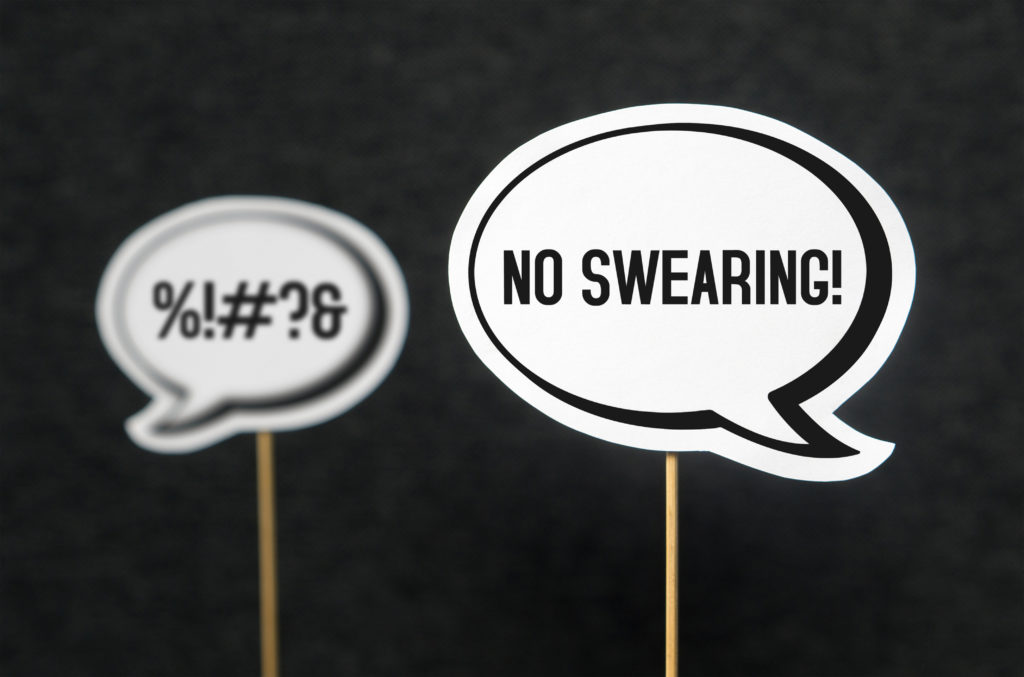Quick Hits
Daily brief research updates from the cognitive sciences

Swearing is frowned upon in many circumstances but is also used by many people in casual situations and particularly by comedians. So why do we swear if it is taboo?
A team of researchers at Keel University in the UK have just published a series of experiments in which they tried to elucidate the psychological mechanisms of swearing. It should be noted that these effects are in line with previous research. First off, they found that swearing increases physical strength – in this case it was how long participants could perform a chair push up (holding yourself for as long as possible on the arms of a chair). Other research has found that swearing increases pain tolerance which may be related.
Another experiment they conducted was in risky behaviour – in this case this was pumping up a balloon and seeing how far participants would pump with the obvious risk that it would explode. Swearing increases risk by 8%. They also noted that swearing increased self-confidence but also it had a humorous effect (also in line with previous research).
The psychological mechanisms they identify are all related to lowering self-control and “letting go”. So, swearing seems to do many things that are actually beneficial to us – no wonder we swear so much.

Andy Habermacher
Andy is author of leading brains Review, Neuroleadership, and multiple other books. He has been intensively involved in writing and research into neuroleadership and is considered one of Europe’s leading experts. He is also a well-known public speaker speaking on the brain and human behaviour.
Andy is also a masters athlete (middle distance running) and competes regularly at international competitions (and holds a few national records in his age category).
Reference
Stephens R, Dowber H, Barrie A, Almeida S, Atkins K.
Effect of swearing on strength: Disinhibition as a potential mediator.
Quarterly Journal of Experimental Psychology, March 2022.
doi:10.1177/17470218221082657
More Quick Hits
Adventurous Play Boosts Mental Resilience in Kids
o, a simple cheap way to help your kids improve all life skills and strengthen mental wellbeing. Too good to be true? Well, this piece of research, just out, finds a fascinating correlation with mental health and kids. This correlation was...
So, Meditation Doesn’t Change Your Brain – Or Does It?
editation can actually change your brain. "Oh, no it can’t!" say these researchers. "Oh, yes it can!" say a lot of other researchers. Does this start to sound confusing? Well, it does because there has been plenty of evidence that...
The Life Factors that Make Lonely People Lonely
Quick HitsDaily brief research updates from the cognitive sciences ou may assume, logically at first glance, that not having contact to people is the most important factor in loneliness. And obviously this does have a large impact — but...
How Music Helps With Collective Grief
his study recently out analyses a fascinating episode in China at the start of the pandemic. A group of international musicians in Shenzhen produced a viral hit in China. This was a cover version of Michael Jackson's “you are not alone”...
Why it pays for companies to help workers have a good day in the office
usiness and executives in those businesses are more than keen to get a competitive advantage. To this end they invest heavily in technology and getting the right people to do the job. But, I am sure, we are all more than aware that the work...
Vaccination to Keep Your Memory?
Quick HitsDaily brief research updates from the cognitive sciences ho wouldn’t want to keep their memory when aging?! Well, researchers have just announced some promising results in mice enabling them to keep their memories and avoid some of...






